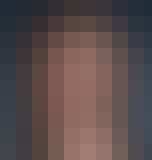Copyright questions about different formats (data, images, music and video) can be especially difficult. Sometimes the law specifically distinguishes between these different formats, and in most cases there are media-specific considerations that impact a copyright analysis. In this course we will look at four different media, paying special attention to the unique issues for each one and the kinds of information that is important when making copyright decisions for each type of material. We will work through fair use issues for each multimedia format, look at format-specific exceptions in the law, and consider unique issues for seeking permission for film, music, images and data. At the end of this course, participants will have a deeper understanding of how to apply our framework for making copyright decisions, and will be more comfortable with assessing multimedia issues. They will have gained more and more diverse experience for considering fair use.
Permission to Use Images

Reviews
4.6 (399 ratings)
- 5 stars71.42%
- 4 stars21.55%
- 3 stars5.26%
- 2 stars1%
- 1 star0.75%
BB
Jan 5, 2019
I don't know how you did it; you made the subject of copyright law fascinating. And you clearly and presented very important and useful information. Thank you.
ML
Dec 3, 2016
Very good course with a lot of
practical examples and real cases to be analyzed.
Format also quite nice with many small sub-lessons on each topic.
From the lesson
Images
Those who create or use works of visual arts benefit from an understanding copyright protections and exemptions. Topics covered in this module include which works of visual arts get copyright protection, what special rights are afforded artists under the Visual Artists Rights Act (VARA), how to apply the TEACH Act and fair use to images, and what steps to take if you need to seek permission. Finally, some attention will be given to social media, implied licenses that can arise when posting and using images, and privacy.
Taught By

Kevin Smith, M.L.S., J.D.
Former Director, Copyright and Scholarly Communication

Lisa A. Macklin, J.D.,M.L.S.
Director, Scholarly Communications Office

Anne Gilliland, JD, MLS
Scholarly Communications Officer
